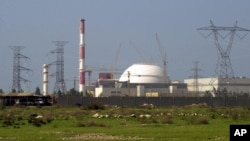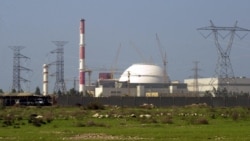Non-proliferation and disarmament have been top priorities of the President since early in the first term, and have not lost their urgency in the second term.
The United States will continue to support the Non-Proliferation Treaty, or NPT, and work toward expanding its influence by signing on new members from the community of nations, said Acting Under Secretary for Arms Control and International Security Rose Gottemoeller.
“The grand bargain of the NPT, where nuclear weapon states pursue disarmament, non-nuclear weapon states abstain from the pursuit of nuclear weapons and all countries are able to access the benefits of peaceful nuclear energy, sets an enduring standard that is as relevant today as it was at the Treaty’s inception.”
Indeed, the United States remains gravely concerned about Iran, North Korea, and Syria, all of whom have violated their international obligations. “Addressing these compliance challenges is essential to preserving the integrity of the nonproliferation regime,” said Ms. Gottemoeller.
“The United States will . . . work with all Parties to discourage states from abusing the NPT’s withdrawal provision, a priority we share with many of our international partners.”
The United States is also working toward making good on its pledge to reduce the role of nuclear weapons in our defense strategy. “We are now exploring the possibilities of . . . . reductions in all categories of nuclear weapons -- strategic, non-strategic, deployed and non-deployed.”
And finally, our most immediate concern is “securing vulnerable nuclear materials in order to keep them out of hands of terrorists,” said Acting Under Secretary Gottemoeller.
“Over the course of the last 40 years, the NPT has taken some hits,” she said. “But it is precisely because of those hits that we have acquired the experience needed to deal more effectively with the challenge of nuclear proliferation.”
The United States will continue to support the Non-Proliferation Treaty, or NPT, and work toward expanding its influence by signing on new members from the community of nations, said Acting Under Secretary for Arms Control and International Security Rose Gottemoeller.
“The grand bargain of the NPT, where nuclear weapon states pursue disarmament, non-nuclear weapon states abstain from the pursuit of nuclear weapons and all countries are able to access the benefits of peaceful nuclear energy, sets an enduring standard that is as relevant today as it was at the Treaty’s inception.”
Indeed, the United States remains gravely concerned about Iran, North Korea, and Syria, all of whom have violated their international obligations. “Addressing these compliance challenges is essential to preserving the integrity of the nonproliferation regime,” said Ms. Gottemoeller.
“The United States will . . . work with all Parties to discourage states from abusing the NPT’s withdrawal provision, a priority we share with many of our international partners.”
The United States is also working toward making good on its pledge to reduce the role of nuclear weapons in our defense strategy. “We are now exploring the possibilities of . . . . reductions in all categories of nuclear weapons -- strategic, non-strategic, deployed and non-deployed.”
And finally, our most immediate concern is “securing vulnerable nuclear materials in order to keep them out of hands of terrorists,” said Acting Under Secretary Gottemoeller.
“Over the course of the last 40 years, the NPT has taken some hits,” she said. “But it is precisely because of those hits that we have acquired the experience needed to deal more effectively with the challenge of nuclear proliferation.”






